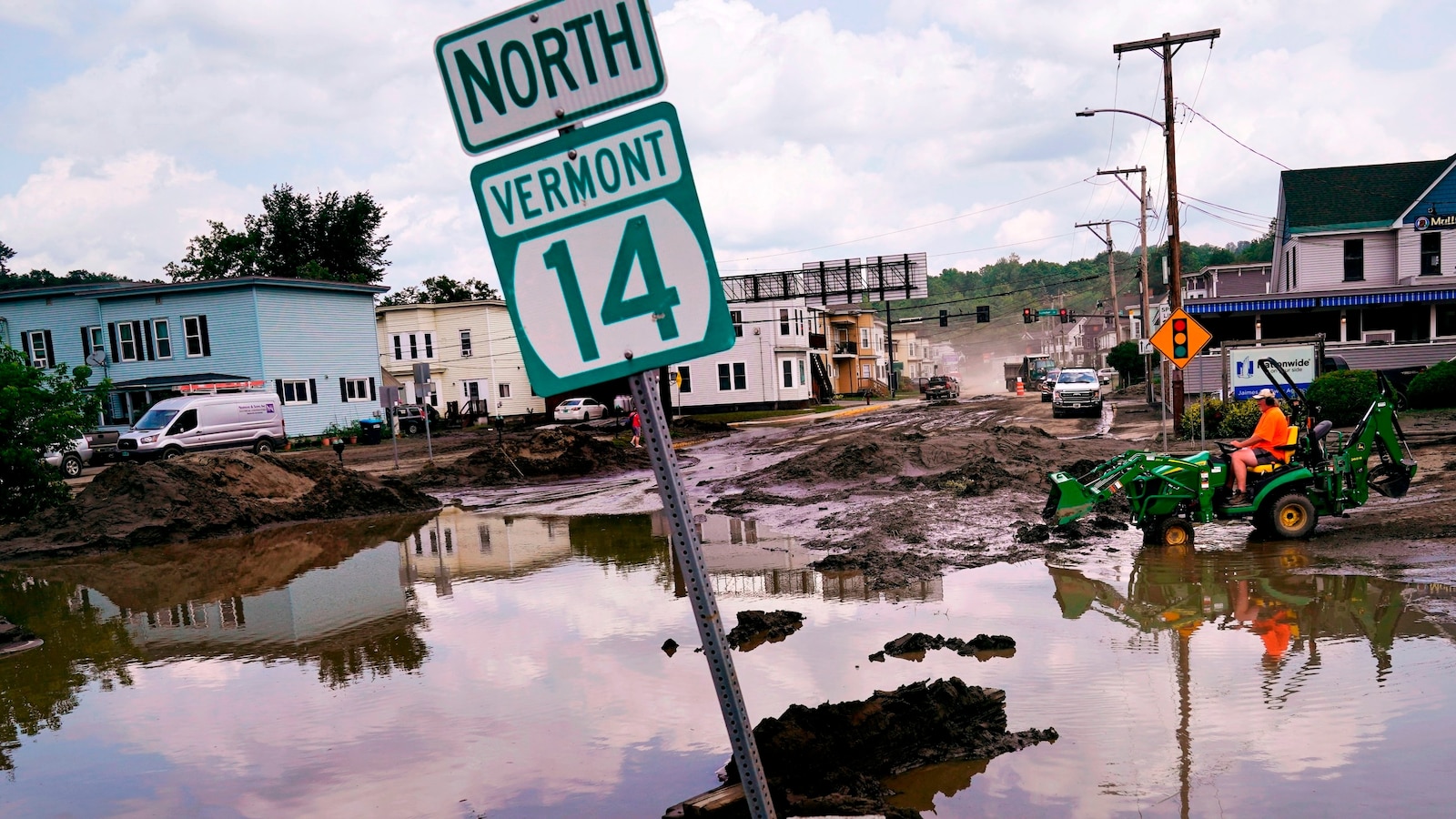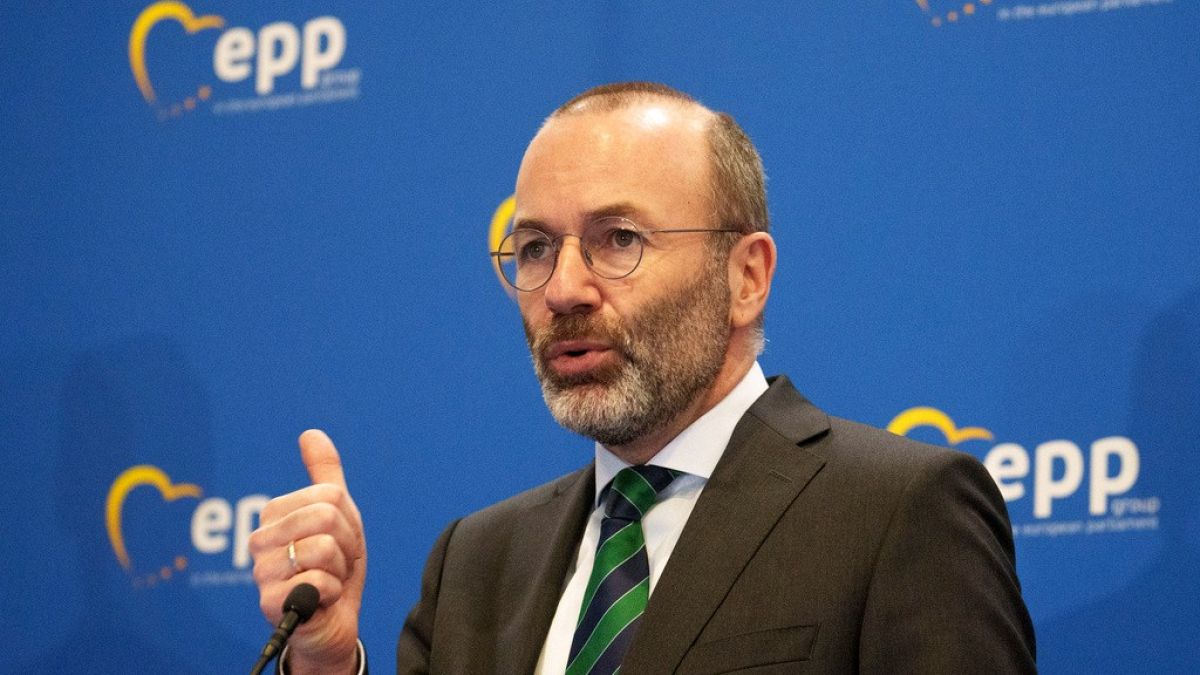Vermont
Pickleball picks up in Vermont

SOUTH BURLINGTON, Vt. (WCAX) – The sport of pickleball is a cross between volleyball, badminton, table tennis, and traditional tennis.
It’s a four-player game where each double takes turns serving to try to win points. It’s a fun, social activity sweeping the nation, with a lot of buzz in Vermont.
Pickleball is the fastest-growing sport in the United States, and now there is a designated indoor space in Vermont for people to come and play with their friends and meet new people along the way.
“You can jump right in and have a good time, so shout out to the social element of pickleball,” said Winooski resident Dana Howe.
“People are just so willing to help too if you’re a beginner. It’s been really nice to connect different friends,” said Burlington resident Sarah Mahon.
Family-owned Catamount Pickleball in South Burlington grew from the pandemic when co-founder Justin Schaaf fell in love with the sport while playing with his family and continued playing in college. “Every chance that I had, I came back home and spoke about pickleball with my family,” said Schaaf.
He says there wasn’t a day where he didn’t talk about pickleball.
“I would try to find courts on every vacation I went on, I would be playing three to five times a week, even while studying engineering, so pickleball has become a part of me that I can confidently say it’s never going away,” said Schaaf.
Schaaf ended up playing the sport at a high level in college and eventually became a coach. His family says watching him inspired them to find a way to bring his love for the sport to Vermont.
“We began to realize that there weren’t enough indoor courts in Northern Vermont, so we decided to band together and take on this project and bring something that the community can really enjoy,” said Richard Schaaf, Justin’s father.
It’s been a little less than two weeks since Catamount Pickleball’s open house, and Richard says it’s already drawn a lot of community interest. “It’s been really tremendous and overwhelming. Everyone has been very appreciative and complementary of the features of the facility, and it’s been really great so far and we’ve been really pleased with how it’s turned out and how everyone is just so happy to be here,” he said.
The courts are open every day from 7:00 a.m. to 10:00 p.m. with the opportunity to play as teams, free play, or take classes if you’ve never picked up a racket.
Copyright 2024 WCAX. All rights reserved.

Vermont
A breakdown of what got done during the Vt. legislative session

MONTPELIER, Vt. (WCAX) – Vermont lawmakers wrapped up the legislative session in the early morning hours Saturday, passing an $8.6 billion state budget.
Lawmakers tackled issues like housing and flood recovery, but also passed a number of new tax increases, including a 3% tax on short-term rentals, a 6% tax on business software and a 3.4% tax when second homes are bought or sold. It comes as Vermonters will also see a 0.44% payroll tax starting July 1 that will help pay for child care.
The session started with flood recovery in the forefront of everyone’s mind but ended with clashes among the House, Senate and Gov. Phil Scott over taxes and spending.
The session was defined by big questions about the future of education and no federal stimulus money to fall back on.
“This has been a hard session. Perhaps the hardest session of my 20 years here in the Statehouse,” said Sen. Allison Clarkson, D-Windsor County.
State lawmakers grappling with the soaring cost of education and spiking property taxes passed a plan to raise them by 13.8%.
The plan, sarcastically blasted by Senate Minority Leader Randy Brock, almost certainly faces a veto from Governor Scott.
“Most Vermonters will be happy that we’ve tamed the property tax problem by limiting this year’s increase to only double-digits,” said Brock, R-Franklin County.
Others stressed the challenges are in contrast to massive legislation last year.
“This has been a dark year but it’s been an amazing biennium,” said Sen. Phil Baruth, D-Vt. Senate President Pro Tem.
Lawmakers also struck 11th-hour deals on retail theft, stiffer penalties for drug trafficking and Act 250 reform. The proposal is intended to balance conservation and the housing crisis.
But not everything made it, including a proposed wealth tax, a bill reforming the state Fish and Wildlife Board, another banning cellphones in the classroom and a proposal to pause the PCB testing program.
The end of the legislative biennium again put the Democratic supermajority at odds with Republican Gov. Phil Scott. In his goodbye speech to lawmakers, Scott acknowledged their differences.
“I think most of us want the same thing. We just have a different vision on how to get there. And after this session, it’s clear that we have a little more work to do,” the governor said.
Political experts say the moderate Republican governor and Democrats are divided on what degree the state should spend and tax.
“I do think you see a deeper debate over principle here between Democrats who are willing to raise more taxes and a Republican governor who thinks it’s central to his philosophy to hold the line,” said Bert Johnson, a Middlebury College political science professor.
As Scott prepares to campaign for a fourth term, we’re tracking at least six bills on the way to his desk that could end in a veto. State lawmakers will return on June 17 to attempt to override.
Copyright 2024 WCAX. All rights reserved.
Vermont
Correctional officer accused of smuggling contraband into Vt. prison

RUTLAND, Vt. (WCAX) – A Vermont correctional officer faces charges after investigators say he smuggled contraband into a prison.
Vermont State Police say David Orvis, 28, of Rutland, coordinated with at least two separate inmates to transport tobacco into the Marble Valley Correctional Facility. Police believe the inmates paid him to do so.
Orvis was reported to Vermont State Police back in February. He has since resigned and now faces charges of neglect of duty.
Orvis is due in court in June.
Copyright 2024 WCAX. All rights reserved.
Vermont
Vermont bill wants to charge big oil for climate change damage, here's how

In a pioneering measure to hold companies responsible for environmental damage, Vermont is poised to make oil and gas giants shell out billions in climate change cleanup.
Vermont’s Climate Superfund Act, which parallels the Environmental Protection Agency’s superfund program, would mandate high-emission corporations — such as ExxonMobil, Shell and Chevron — to be financially accountable for a portion of the costs of extreme weather damage in the state.
“For decades, fossil fuel corporations knowingly destroyed our planet for short-term profits,” Vermont Sen. Bernie Sanders told ABC News.
This image made from drone footage provided by the Vermont Agency of Agriculture, Food and Markets shows flooding in Montpelier, Vt., July 11, 2023.
Vermont Agency of Agriculture, Food and Markets via AP
If approved, companies responsible for more than one billion tons of greenhouse gas pollution in the state would make payments calculated based on each corporation’s emissions from 1995 to 2024, according to the legislation.
The bill would use data from the Carbon Majors database, which analyzes historical production data from 122 of the world’s largest oil, gas, coal and cement producers, to litigate the climate liability claims.
Vermont’s Agency of Natural Resources would then allocate the funding for the Climate Superfund Cost Recovery Program Fund to enhance infrastructure, weatherproof public buildings and address the health impacts of climate change, the bill states.
The groundbreaking measure would make Vermont the first state in the country to enact a bill of this kind, with New York, California, Maryland and Massachusetts attempting to push similar policies.
“I am proud that Vermont will go further than any other state in forcing the fossil fuel industry to pay for the destruction caused by the crisis of climate change,” Sanders said.
Marking a bipartisan victory, the bill passed in both Vermont’s Senate and House with an overwhelming majority and is headed to Republican Governor Phil Scott’s desk to sign or veto.
If vetoed, Vermont’s General Assembly is prepared to reconvene next month to consider an override vote, according to Vermont Public.

Flood waters remain on the destroyed fields at the Intervale Community Farm, July 17, 2023, in Burlington, Vt.
Charles Krupa/AP
Proponents of the bill say the Superfund Act is the first legal step in a decades-long environmental crusade to hold polluting companies responsible for damaging waste.
“This effort comes down to a simple lesson that we all learn as kids: If you make a mess, you have to clean it up,” Elena Mihaly, vice president of the Vermont chapter of the Conservation Law Foundation, told ABC News.
In July 2023, catastrophic flooding drenched communities across Vermont, leaving two people dead, bridges and roads decimated and over a billion dollars in property damage in its wake, according to Mihaly.
“Last year’s devastating floods showed just how vulnerable Vermonters are to the climate chaos spurred by the fossil fuel industry,” Mihaly said, adding, “It’s Vermonters who bear the full burden of that chaos on our physical, mental and financial well-being.”
Adversaries of the bill warn the legislation would pit the state against billion-dollar corporations in a legal battle that could never make it out of the courtroom.
“A decision was made to go to war with corporations that probably have as many attorneys as we do citizens,” Vermont Sen. Russ Ingalls, who cast one of the three votes against the bill, told ABC News, adding, “We will be squashed like a bug.”

Gas prices are seen, Feb. 23, 2011 in Montpelier, Vt.
Toby Talbot/AP, FILE
Ingalls contends the Superfund Act would “cause our property taxes to rise by nearly 15%,” arguing that the potential “millions” spent in litigation could be better spent.
A spokesperson for the American Petroleum Institute (API), the largest U.S. trade association for the oil and natural gas industry, argued the Superfund Act would “stall” corporation’s progress to create “low-carbon solutions.”
“America’s natural gas and oil industry is working to address climate change and build a lower carbon future, while simultaneously meeting the world’s growing energy needs,” API’s Scott Lauermann told ABC News.
“This proposal is nothing more than an unnecessary new fee on American energy that would only stall the innovative progress underway to accelerate low-carbon solutions while delivering the energy communities need,” Lauermann said.
Environmental experts fear that promises of a sustainable future are not pushing the needle far enough when extreme weather damage has left communities displaced, and a state scrambling to respond.
“The reality is, the climate crisis is here,” Ben Edgerly Walsh, climate and energy program director for the Vermont Public Interest Research Group, told ABC News. “It’s already costing even little Vermont hundreds of millions of dollars — so, we have to do right by our citizens and invest more in resiliency and adaptation.”

A small tractor clears water from a business as flood waters block a street, July 12, 2023, in Barre, Vt.
Charles Krupa/AP
Infrastructure projects funded by corporations would include flood protections such as upgrading stormwater drainage systems, making defensive upgrades to roads, bridges, railroads and transit systems, retrofitting sewage treatment plants and other infrastructure sites vulnerable to flooding and more, according to the bill.
Mihaly believes “the Climate Superfund bill is a rational, lawful and necessary means of holding the fossil fuel industry accountable to pay their fair share of those burdens.”
“The global fossil fuel industry has contributed to making a mess in Vermont – and it’s time for them to help clean it up,” Mihaly said.
-

 Politics1 week ago
Politics1 week agoAustralian lawmakers send letter urging Biden to drop case against Julian Assange on World Press Freedom Day
-

 World1 week ago
World1 week agoBrussels, my love? Champage cracked open to celebrate the Big Bang
-
News1 week ago
A group of Republicans has united to defend the legitimacy of US elections and those who run them
-

 Politics1 week ago
Politics1 week agoHouse Dems seeking re-election seemingly reverse course, call on Biden to 'bring order to the southern border'
-

 World1 week ago
World1 week ago‘It’s going to be worse’: Brazil braces for more pain amid record flooding
-

 Politics1 week ago
Politics1 week ago'Stop the invasion': Migrant flights in battleground state ignite bipartisan backlash from lawmakers
-

 World1 week ago
World1 week agoGerman socialist candidate attacked before EU elections
-

 World1 week ago
World1 week agoSpain and Argentina trade jibes in row before visit by President Milei


















